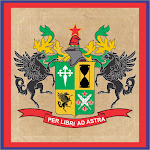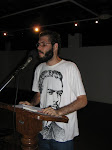Technology as a Tool of Education: Between the Techno-Utopia and Technorealism
(Ensaio apresentado na UNEB, para disciplina "Tecnologia Aplicada ao Ensino de Língua Inglesa")
Technology needs to be used inside the classroom. In principle, nobody will deny this idea because it is logical and historically coherent. If the evolution of technology was important part in the construction of Humanity’s history, it is natural that a Human Being uses the technology as part of the educational process. But, when someone advances in the question and starts to think about advantages and disadvantages about a broad use of the technology, the debate between techno-utopians and technophobes shows that more reflection is needed.
By the technophobe perspective, the use of technology has more disadvantages than advantages because the technology (especially electronic-based) is a kind of Pandora’s Box or Mephistopheles and the people must be careful. But, this critical viewpoint has a problem when it is confronted with the technology means.
The fast development of machines and hardware in the last two decades created a mistake in the common sense: all discussions about technology involve only computer and internet. The cause of this “confusion” is the fast and fantastic development of IT and telecommunication had in these years. However, it can not lose track of the fact that technology go beyond the computer. It includes since the complex machines (as a space shuttle) until simple tool (as a tomahawk) or techniques. This notion is more clear when translates the nuclear word τέχνη / techne, that means “Craft” or “Art”. So, “Writing” and “Alphabet” are technologies too, despite the old age… They highlight a curious point: All educational process is derived of a technology – the technique of codifying ideas using an organized set of letters – alphabet and/or writing. So, how is it possible only seeing disadvantages in the use of technology in the Education, according to technophobes? It is oxymora!
Well, looking from this point of view, there is an invitation to be a techno-utopian and only the advantages of a massive use the technology in the classroom (especially the internet and computer): Increase the students’ motivation, provide real-time information, reach many kinds of learning forms (audiovisual, kinesthetic, etc) and teach the students how to select information and change it into knowledge. All is true when the technologies are a TOOL of learning. The problem is when the technology loses this position and turns into the GOAL of learning . According David Shenk: “The art of teaching cannot be replicated by computers, the Net, (…). These tools can, of course, augment an already high-quality educational experience. But to rely on them as any sort of panacea would be a costly mistake.”
Thus, the conclusion is that technology has a broad definition which involves simple tools and complex machines. So, the discussion is not only seeing if only the use of technology has advantages or disadvantages; however, it is how the technology is used, if the technology is used as a tool or as a goal.
Bibliography
ELLUL, Jacques. “A técnica e o desafio do século”. Rio de Janeiro: Paz e Terra; 1968.
SHENK, David. “Principles of technorealism”. Acessado em


















Nenhum comentário:
Postar um comentário